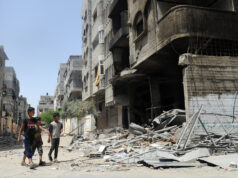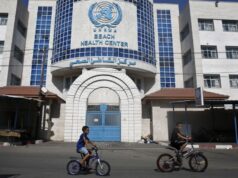Continued violence over the past two weeks in Syria highlighted the challenge posed to international non-governmental organizations (INGOs) operating in the region. Inspectors from the Organization for the Prohibition of Chemical Weapons (OPCW) said last Wednesday that unrest would jeopardize the group’s ability to meet a UN Security Council disarmament timeline. Meanwhile, gunmen kidnapped seven members of the International Committee of the Red Cross (ICRC) Sunday, before freeing four of them.
During a news conference last week, the OPCW director general expressed doubt over meeting a November 1st deadline to eliminate Syria’s ability to weaponize its chemical stockpile. Not all of the weapons sites are under government control, so a divided opposition and fighting in contested areas has hampered the OPCW’s progress. Inspectors must have both the rebel groups’ and the Assad government’s cooperation and agreement to a temporary cease fire in the area where inspectors plan to work. Officials said that the Assad regime has cooperated with inspectors, who have reached five out of 20 chemical weapon production sites since the effort started on October 1st.

Free Syrian Army fighters escort a convoy of U.N. vehicles carrying a team of chemical weapons experts at one of the sites of an alleged chemical weapons attack in Damascus’ suburbs of Zamalka, Syria, Aug. 28, 2013. (Photo: Reuters) |
Not only do contested areas contain weapons sites, but they also house many civilians in need of food and other humanitarian assistance. Providing aid in those places also poses a great challenge to the safety of aid workers, as Sunday’s kidnapping showed. At least 20 aid workers have died in Syria over the past year alone.
The Syrian government controls aid flows and has only approved 12 international humanitarian groups to assist the country. The UN’s World Food Program was prevented by the government from delivering aid to one town that had been the site of an earlier chemical attack. Shipments and convoys are often delayed due to government intransigence and opposition checkpoints. The UN Security Council released a statement urging Syrian authorities to allow cross-border deliveries of humanitarian aid and to pause in their fighting, emphasising that Syrian authorities should be held responsible for protecting the population.
More than 2 million Syrians have fled during the civil war, which the UN reports has killed more than 100,000 people. Because international aid has slowed considerably due to excessive red tape and violence, millions more inside Syria are in desperate need of help. Syria’s refugee crisis presents growing humanitarian challenges to the neighboring countries such as Jordan and Lebanon.





